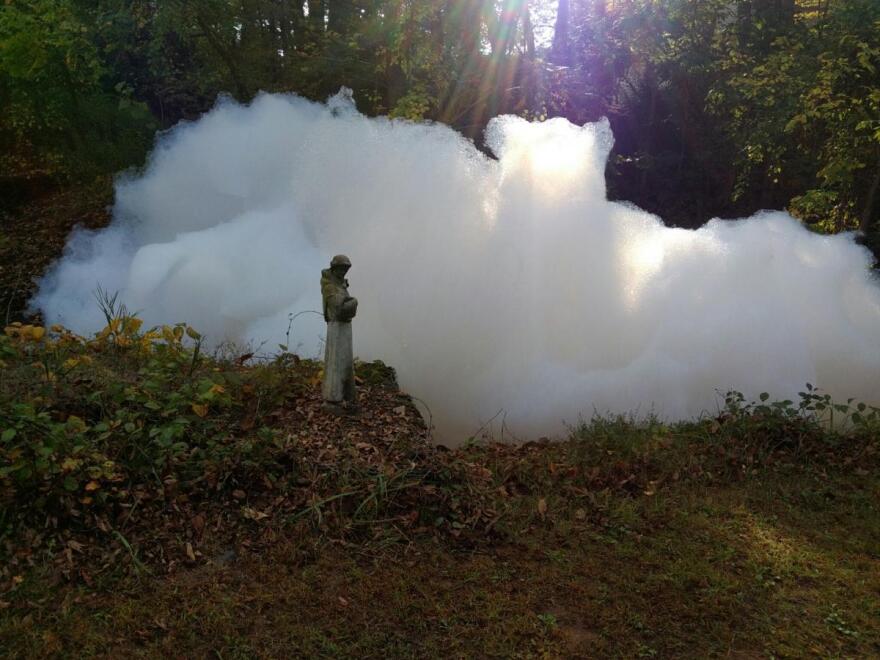After a B-17 plane crashed at Bradley International Airport in Connecticut, some of the PFAS in the firefighting foam washed out of the airport and into nearby communities.
A few days after the crash, Paddy Abramowicz, who lives a 5-minute drive from the airport, says she was walking by the brook in her backyard when she saw piles of firefighting foam more than 10 feet high.
"It looked like a washing machine had exploded,” says Abramowicz, “and it was coming over both banks of the brook.”
PFAS exposure has been linked to health issues -- like reproductive problems and cancer. But the PFAS-laden firefighting foam that first responders used right after the plane crash is required by the Federal Aviation Administration, in large part because it is so effective at putting out extremely hot fires. Seven people were killed in the crash, but a number of people on board got out alive. So how do you balance saving a life in the short term against the possible long-term health effects of PFAS exposure?
David Resnik, a bioethicist at the National Institutes of Health, has some thoughts on the best way to balance conflicting needs and how to tackle policymaking decisions when there’s no clear right answer.
This conversation aired on the weekly show NEXT. You can listen to the entire episode here.





